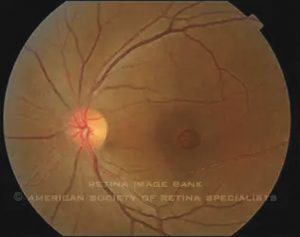Dr. Katia Taba, Board-Certified Ophthalmologist and Retinal Specialist


One thing that we want to recognize about these nearly 4 million breast cancer survivors is that the treatments they have gone through can and often do have lasting side effects. One such side effect is how cancer fighting drugs and radiation affects the eyes. Let’s have a look at some of the possible side effects that can affect the ocular health of cancer patients and survivors.
Though it may be only a small number of patients who experience ocular side effects from their cancer treatment, there is evidence that conditions such as dry eye, cataracts, and retinopathy can at least partly be attributed to some breast cancer treatments and medications. When you look at the numbers, even a small percentage of 3.8 million is a large number. That is why it is important to take a look at the research and know what may happen if you find yourself undergoing treatment for breast cancer.
The breast cancer medication most commonly associated with ocular side effects is tamoxifen, but 5-flouracil (5-FU) has also been called into question as well as aromatase inhibitors which are sometimes prescribed to suppress secondary tumor formation. Let’s have a look at each.
Tamoxifen
Tamoxifen has been shown to cause such eye problems as dryness, irritation, cataracts, and deposits on the retina. However, according to Dr. K.V. Chalam of the University of Florida College of Medicine, these side effects are related to dosage. In the past, cancer patients were given doses as large as 150 mg and ocular side effects were prevalent. Today, the dose is much smaller, usually around 20 mg or less and there are fewer cases of side effects. However, they still exist and should addressed by an ophthalmologist.
Chemotherapy
Chemotherapy drugs are toxic to cells, especially those in a tumor. However, they can also affect other cells that divide regularly like those in the corneal epithelium. As a result, patients undergoing chemotherapy often report dry eye. The fact that this is easily treated with lubricating drops is good news for those who already have enough to deal with at the moment!
Another possible side effect of chemotherapy is conjunctivitis (aka pink eye). A topical nonsteroidal anti-inflammatory eyedrop can be administered along with lubricating drops is the patient is experiencing pain.
Aromatase Inhibitors
The effects of aromatase inhibitors (AIs) are similar to those of tamoxifen. AIs such as anastrozole, letrozole, and exemestane are often prescribed to postmenopausal breast cancer patients. Their ocular side effects are usually mild, but if left untreated could lead to serious eye disease.
Research shows that patients taking anastrozole are more likely to have a retinal hemorrhage than those taking tamoxifen. This hemorrhage may be caused by estrogen depletion caused by the drug.
More research is necessary in order to show why cancer treating medications have this effect of many breast cancer patients. As mentioned, it is only a small percentage of patients who report these side effects, but to those women (and men), it is one more thing in a long list of what they must deal with as they undergo treatment or recover from months or years of treatment. If these side effects could be avoided, it would make their lives at least a little more comfortable.
Personalized Retina Care of Naples
If you are experiencing any changes in your eye health, whether it is blurry vision, pain, impaired vision, or any other visual irregularities, you should see an ophthalmologist right away. The earlier a disease is detected, the better the outcome and treatment options are for you. You will find a friendly and warm environment at Personalized Retina Care of Naples.
Please call (239) 325-3970 today to schedule your eye exam. When necessary same day appointments can often be accommodated.
Personalized Retina Care of Naples provides comprehensive diagnosis and treatment for retinal disorders. Dr. Taba also gives second opinions on retinal and general eye conditions. Dr. Taba is a Board-Certified Ophthalmologist and is Fellowship trained in surgical and medical retinal diseases.
Personalized Retina Care of Naples
www.retinanaples.com | 239-325-3970
3467 Pine Ridge Rd., Suite 103, Naples 34109
Source:
https://www.aao.org/eyenet/article/watch-ocular-effects-of-
breast-cancer-drugs
 Southwest Florida's Health and Wellness Magazine Health and Wellness Articles
Southwest Florida's Health and Wellness Magazine Health and Wellness Articles

